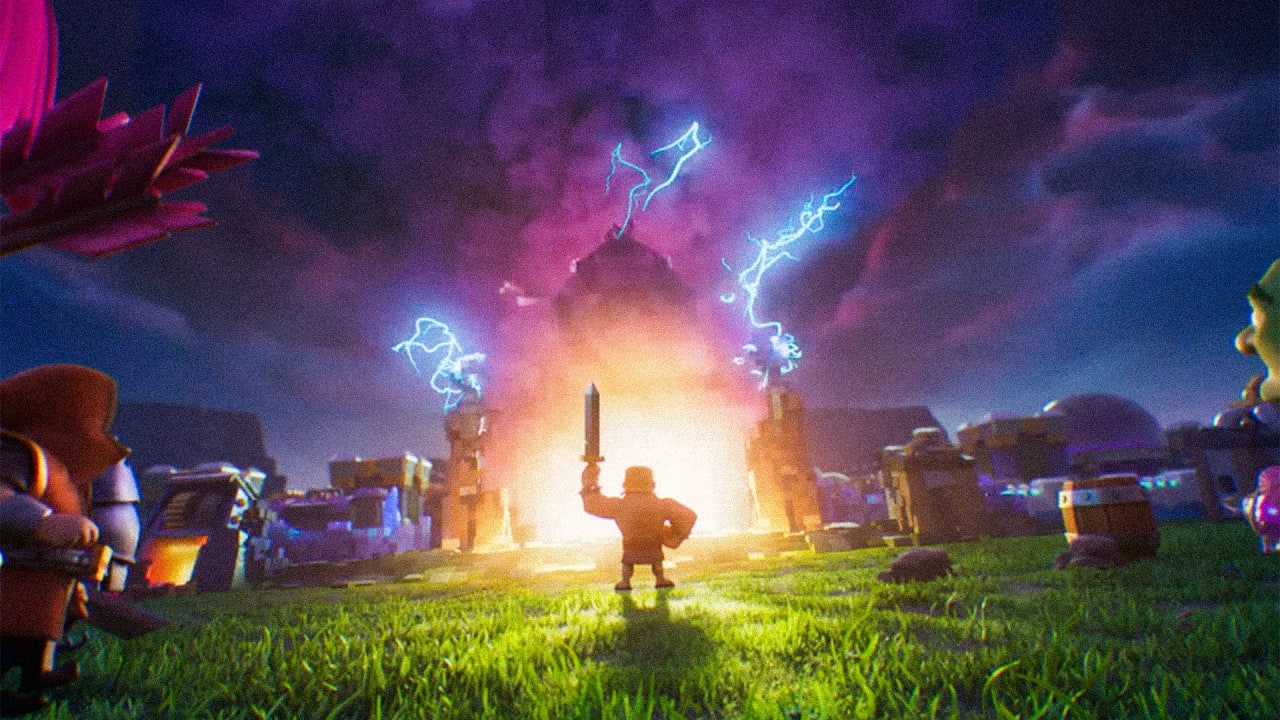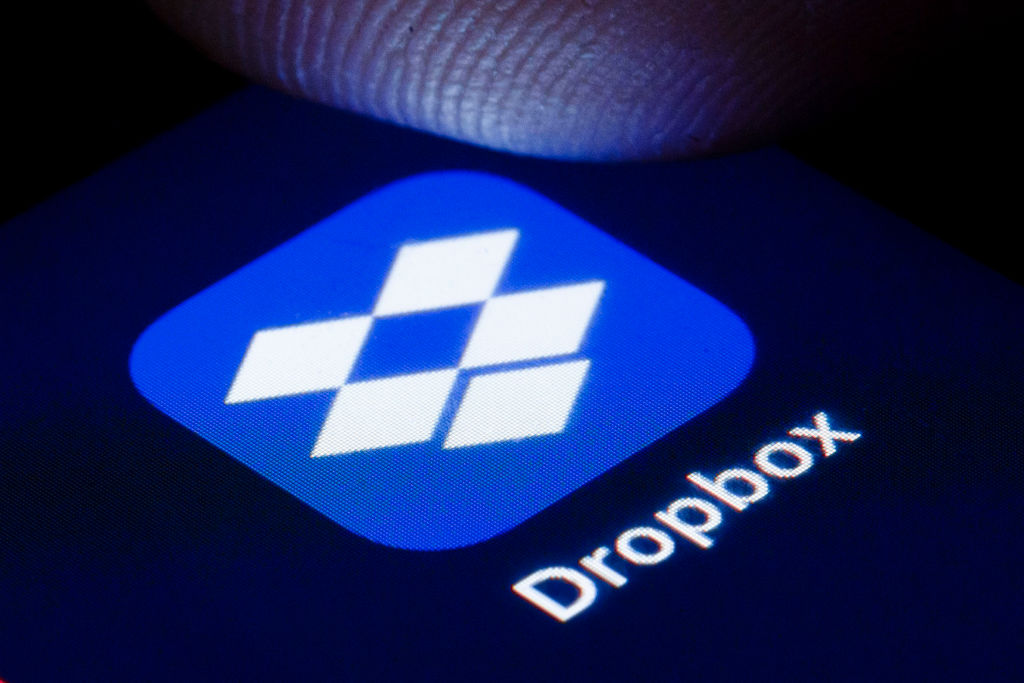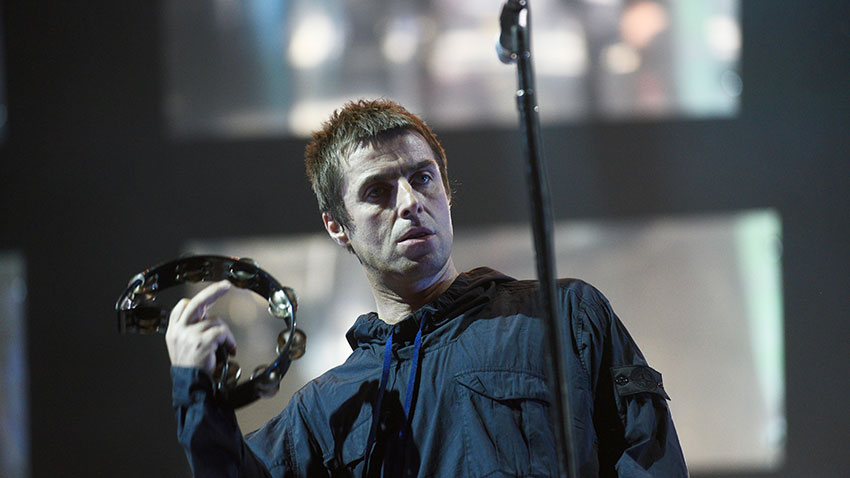Why Clash of Clans is celebrating its 10th anniversary with a fake 40-year history
Do you remember Clash-mania? Those days back in the 1980s when the video game Clash of Clans became the biggest pop-cultural phenomenon the world had ever seen, and its main character, the Barbarian, was gracing magazine covers, cereal boxes, and made into an action figure? A new short documentary tells the fascinating story of the game’s 40-year history, the dramatic rise, the crushing fall, and it’s subsequent rebirth. Except, y’know, the whole thing is fake. Today marks the actual, for real, 10th anniversary of mobile gaming juggernaut Clash of Clans, but its parent company, Supercell, thought it would be fun to imagine a world where Clash came of age in the time of Pac-Man and Mario. Created with ad agency Wieden + Kennedy, Clash From The Past traces the game’s (fictional) origin from three teens in a Finnish basement to cultural blockbuster. It’s a fun and elaborate gag that manages to reflect how gaming pop culture has evolved over the past few decades. 40 years ago, it was an arcade game in a basement. Today, millions of people play it worldwide. This is Clash from the Past.https://t.co/pATXOljDrg pic.twitter.com/yjCyc6ZWd7 — Clash of Clans (@ClashofClans) July 27, 2022 Supercell’s brand creative lead Michael Gurman says the company talks a lot internally about trying to do things that only they would do. “I think a lot of video game companies would celebrate their history, be proud of it, and use it as an occasion for chest-thumping a bit about their actual accomplishments,” says Gurman. “We have a history of being a bit mischievous, never taking ourselves too seriously, so we loved how this would take the 10-year anniversary and not talk about our actual history at all. We thought it would be really fun to give our fans 30 extra years of history that didn’t exist.” In reality, Supercell launched Clash on this day in 2012, and it came pretty close to the phenom heights joked about in the fake doc. It’s been downloaded more than 3 billion times, was a Top 5 App Store download in both 2012 and 2013, and made a major splash with one of the most popular Super Bowl ads of 2015. The game still regularly ranks among the App Store’s Top 10 top grossing apps, including this week. The fake history isn’t completely out of character, though. Back in 2012, Supercell game designer Lasse Louhento told Pocketgamer that part of the visual inspiration for Clash came from old SNES games like Gauntlet. Beyond the fake doc—which has already attracted millions of views—Supercell is celebrating its decade of mobile gaming dominance with a few other surprises to delight fans, like mini-games that recreate some of the fake past celebrated in the doc. In these, Clash of Clans is reimagined as an arcade game called Clash, a ’90s console racer called Clash Dash, and an early 2000s open-world game called Clash: Cradle of Darkness. Each are era-specific and have been “remastered” for mobile so they could be played in the Clash of Clans app. Other IRL tie-ins to the fake doc are a trio of brand collaborations, including a General Mills cereal called Boom Boom, a capsule collection of apparel with Champion, and a series of Clash-themed Garbage Pail Kids with Topps. “It’s become a custom for brands to do collaborations, but with this the approach was about more than simply finding companies to partner with, but to also tie them into this larger narrative that this whole thing could be real,” says W+K creative director Lawrence Melilli. “So we made the ’90s breakfast cereal for real, re-issuing it now as this thing from the vault, releasing what looks like an archival commercial, and then putting that into the documentary. Everything is tied together in an attempt to create this plausible alternate reality for fans to have fun with.” In 2017, Supercell marked Clash’s fifth birthday by taking a popular Builder character out of the game and into the real world, even building an 18-foot Tesla Tower—that doubled as a a giant statue of the game’s P.E.K.K.A. character—to act as an elaborate phone charger for passersby. Then-ad agency partner Gerry Graf said at the time that, given the fun collection of characters and incredibly strong fan community, Clash had the content potential to be its own version of Pixar. For Gurman, the ambition of taking these characters out of the game and storytelling in different media remains. “We see Clash as our biggest and most valuable IP,” says Gurman. “For the future of Clash, from the IP and entertainment side, we’ve always used animation to put the characters out there, and we’re looking at longer-form storytelling, and we’re exploring other ways to bring Clash into the entertainment space.” To that end, a new Clash of Clans graphic novel will be available for pre-order in the coming months. And yes, it’s for real.

Do you remember Clash-mania? Those days back in the 1980s when the video game Clash of Clans became the biggest pop-cultural phenomenon the world had ever seen, and its main character, the Barbarian, was gracing magazine covers, cereal boxes, and made into an action figure? A new short documentary tells the fascinating story of the game’s 40-year history, the dramatic rise, the crushing fall, and it’s subsequent rebirth.
Except, y’know, the whole thing is fake.
Today marks the actual, for real, 10th anniversary of mobile gaming juggernaut Clash of Clans, but its parent company, Supercell, thought it would be fun to imagine a world where Clash came of age in the time of Pac-Man and Mario. Created with ad agency Wieden + Kennedy, Clash From The Past traces the game’s (fictional) origin from three teens in a Finnish basement to cultural blockbuster. It’s a fun and elaborate gag that manages to reflect how gaming pop culture has evolved over the past few decades.
40 years ago, it was an arcade game in a basement. Today, millions of people play it worldwide. This is Clash from the Past.https://t.co/pATXOljDrg pic.twitter.com/yjCyc6ZWd7
— Clash of Clans (@ClashofClans) July 27, 2022
Supercell’s brand creative lead Michael Gurman says the company talks a lot internally about trying to do things that only they would do.
“I think a lot of video game companies would celebrate their history, be proud of it, and use it as an occasion for chest-thumping a bit about their actual accomplishments,” says Gurman. “We have a history of being a bit mischievous, never taking ourselves too seriously, so we loved how this would take the 10-year anniversary and not talk about our actual history at all. We thought it would be really fun to give our fans 30 extra years of history that didn’t exist.”
In reality, Supercell launched Clash on this day in 2012, and it came pretty close to the phenom heights joked about in the fake doc. It’s been downloaded more than 3 billion times, was a Top 5 App Store download in both 2012 and 2013, and made a major splash with one of the most popular Super Bowl ads of 2015. The game still regularly ranks among the App Store’s Top 10 top grossing apps, including this week. The fake history isn’t completely out of character, though. Back in 2012, Supercell game designer Lasse Louhento told Pocketgamer that part of the visual inspiration for Clash came from old SNES games like Gauntlet.
Beyond the fake doc—which has already attracted millions of views—Supercell is celebrating its decade of mobile gaming dominance with a few other surprises to delight fans, like mini-games that recreate some of the fake past celebrated in the doc. In these, Clash of Clans is reimagined as an arcade game called Clash, a ’90s console racer called Clash Dash, and an early 2000s open-world game called Clash: Cradle of Darkness. Each are era-specific and have been “remastered” for mobile so they could be played in the Clash of Clans app.
Other IRL tie-ins to the fake doc are a trio of brand collaborations, including a General Mills cereal called Boom Boom, a capsule collection of apparel with Champion, and a series of Clash-themed Garbage Pail Kids with Topps.
“It’s become a custom for brands to do collaborations, but with this the approach was about more than simply finding companies to partner with, but to also tie them into this larger narrative that this whole thing could be real,” says W+K creative director Lawrence Melilli. “So we made the ’90s breakfast cereal for real, re-issuing it now as this thing from the vault, releasing what looks like an archival commercial, and then putting that into the documentary. Everything is tied together in an attempt to create this plausible alternate reality for fans to have fun with.”
In 2017, Supercell marked Clash’s fifth birthday by taking a popular Builder character out of the game and into the real world, even building an 18-foot Tesla Tower—that doubled as a a giant statue of the game’s P.E.K.K.A. character—to act as an elaborate phone charger for passersby. Then-ad agency partner Gerry Graf said at the time that, given the fun collection of characters and incredibly strong fan community, Clash had the content potential to be its own version of Pixar. For Gurman, the ambition of taking these characters out of the game and storytelling in different media remains.
“We see Clash as our biggest and most valuable IP,” says Gurman. “For the future of Clash, from the IP and entertainment side, we’ve always used animation to put the characters out there, and we’re looking at longer-form storytelling, and we’re exploring other ways to bring Clash into the entertainment space.”
To that end, a new Clash of Clans graphic novel will be available for pre-order in the coming months. And yes, it’s for real.






















